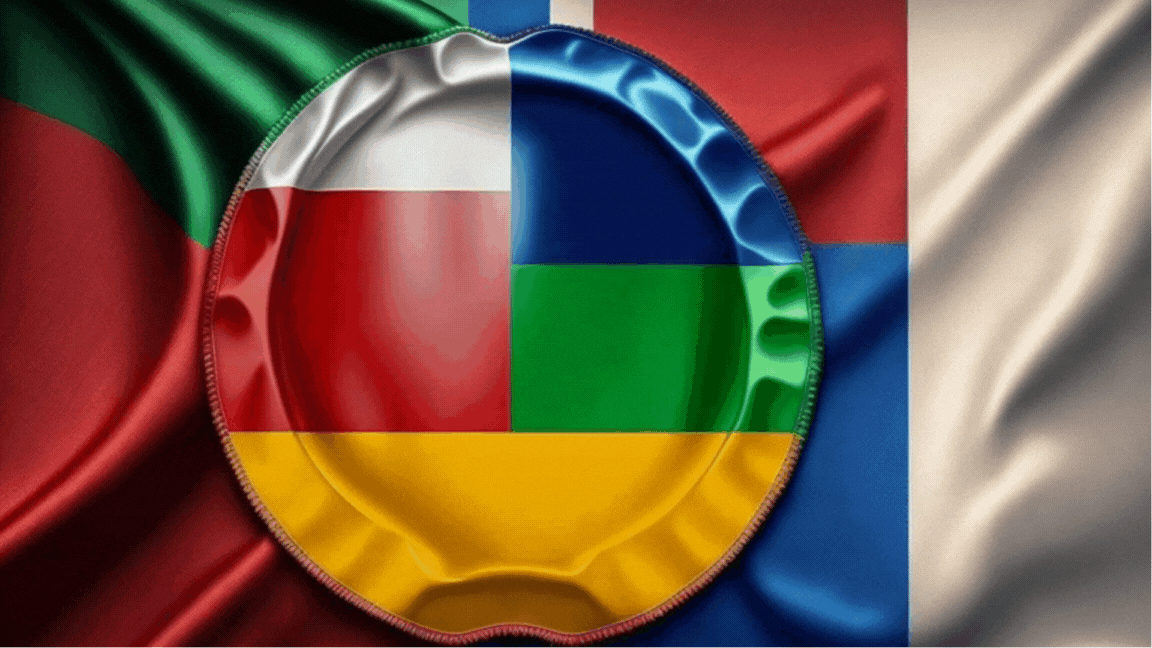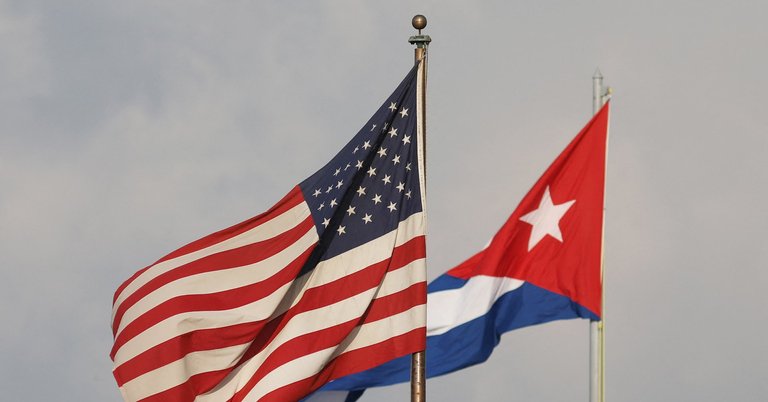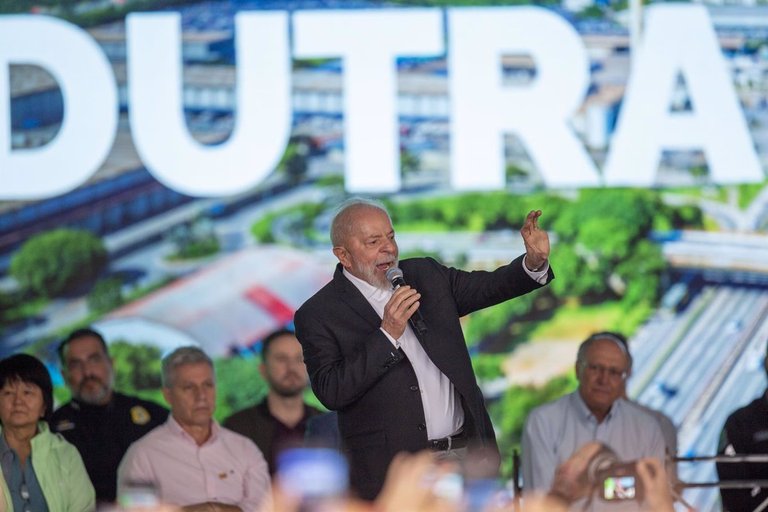
Hello folks. I have been absent for a few days due to work commitments, particularly with my doctoral research. Today, finally, I have presented some advances to the scientific committee, obtaining excellent results. So the time invested in these matters has not been in vain. Naturally, I have lost some income by being inactive in Hive. Still, I really enjoy these spaces of scientific socialization, and I feel rewarded by the evaluations of a scientific committee that gives many more punches than hugs. Now, back to business!!!
Changes in U.S. sanctions against Cuba. For better or for worse?
The Biden administration on Tuesday modified some aspects of the regulations implementing the comprehensive sanctions regime applied to Cuba since 1960, to allow certain services in terms of access to technology and finance. Some measures only benefit the private sector or contain certain restrictions to prevent the Cuban government from using them better.
The latter aligns with Washington's attempts to appeal to the private sector as a factor for regime change. Nevertheless, from a practical point of view, the modifications are positive, insofar as they make the application of sanctions more flexible. Cleverly taken advantage of by Havana, somehow they could be useful to alleviate the humongous economic crisis that Cubans are going through. The following is a critical summary of the main changes published in today's edition of the Federal Register:
The category “self-employed” is replaced by “independent private sector entrepreneur” to “better reflect [the current structure] of the [Cuban] non-state sector,” which already includes cooperatives and private SMEs.
Internet services authorized to be exported or re-exported from the United States to Cuba are expanded to include social media platforms, collaboration platforms, video conferencing, e-gaming and e-learning platforms, automated translation, web maps, user authentication services, and cloud-based services. Previously, only storage services were allowed in the cloud. Prohibited officials of the Government and the Communist Party of Cuba, as well as organizations administered or controlled by these structures, may access these services as long as they are widely available on the Internet at no cost to users.
The export or re-export from the United States of software and mobile applications of Cuban origin is authorized. Previously, only imports were allowed. According to Washington's narrative, this will enhance the ability of independent Cuban entrepreneurs to offer their products in app stores around the world. In any case, the authorization does not prevent Cuban state-owned companies—as long as they are not blacklisted by Foggy Bottom—from exporting software and mobile applications to the United States, and then having those exported or re-exported from there.
Banking institutions subject to U.S. jurisdiction are authorized to create, maintain and allow remote use of bank accounts by “independent private sector entrepreneurs”. This is one of the strongest changes, which could mean an improvement in the costs incurred by the private actors of the economy to place products imported from the United States on the Island.
The license to process U-turn transactions, which had been eliminated by the Trump administration, is reinstated. In any case, while it was active, the Cuban government was never able to concretely benefit from this license, at least by its narrative.
 Source
SourceThe Venezuelan electoral drama reloaded
The government of Nicolás Maduro, through the electoral authority, recently revoked the invitation to the European Union to send an electoral observation mission for next July's elections. This now-broken deal was part of the agreements signed between the opposition and Chavismo in Barbados last year, but Caracas claims that the European bloc has maintained a policy contrary to sound understanding, exemplified by the renewal of sanctions to certain officials allegedly linked to human rights violations. In truth, it was not a good sign from Brussels to maintain these sanctions, in addition to those weighing on the purchase of arms and “repression equipment”, but it also seems to me an ill-advised decision by the Miraflores Palace to block the observation mission. Inevitably for them, the dominant reading will be that Chavismo is not ready to carry out transparent elections.
Comunicación Unión Europea, 28 de mayo 2024. pic.twitter.com/yOiIDOZkjn
— Unión Europea en Venezuela 🇪🇺🇻🇪 (@UEenVenezuela) May 29, 2024
Lula vs. Netanyahu
The Brazilian president has formally recalled his ambassador to Israel, Frederico Meyer, while nominating him as the South American giant's representative to the Conference on Disarmament in Geneva. Lula da Silva has been quite vocal in his criticism of Israel's bloody onslaught on Gaza, unleashed in response to an electric Hamas attack last October. By all accounts, the Israeli reaction has been disproportionate, with an unforgivable cost in innocent lives imposed with arrogance and disregard for international order. Meyer had been recalled for consultations in February and replaced by the Chargé d'Affaires.
 Source
SourceMilei lectures at Stanford while soup kitchens languish
The Argentine president is a celebrity. He has embodied a character that connects perfectly with contemporary political dynamics, very well worked from the field of “political aesthetics”. Back in the United States, the head of the Pink House has visited the Hoover Institute of Stanford University, directed by former Secretary of State Condoleezza Rice. There, he lectured again on the liberal theory he embraces as a market anarcho-capitalist and rebuked leftist leaders of the region such as Petro and López Obrador. He has not failed to send another dart to his peer in Madrid, with whom he has had a May full of boxing. Milei, who in his previous visit to his close ally met with Elon Musk, this time has gotten the attention of Sam Altman (OpenAI), Sundar Pichai (Google), and Timothy Cook (Apple).
Milei boasts of these meetings, and that the list—or the queue—of important people who want to sit down with him is endless. The problem is when and how that “high politics” will land on the table of Argentines, and whether or not he will release the 5,000 tons of food destined for soup kitchens whose resources are depleted. In this matter, the thesis of the government of La Libertad Avanza is that during the government of Alberto Fernández, a mechanism of corruption and extortion was enthroned, but if this is the case, he is making some good people pay for sinners. Poor people that, beyond who is to blame for their economic asphyxia, are now his responsibility as the ruler of the nation. The Ministry of Human Capital today increased allocations for two social programs, although these essentially only touch economically vulnerable parents.
Disertación del Presidente Javier Milei en la Institución Hoover de la Universidad de Stanford, en Estados Unidos. pic.twitter.com/LreDYdtciU
— Oficina del Presidente (@OPRArgentina) May 29, 2024
And this is all for our report today. I have referenced the sources dynamically in the text, and remember you can learn how and where to follow the LATAM trail news by reading my work here. Have a nice day.

